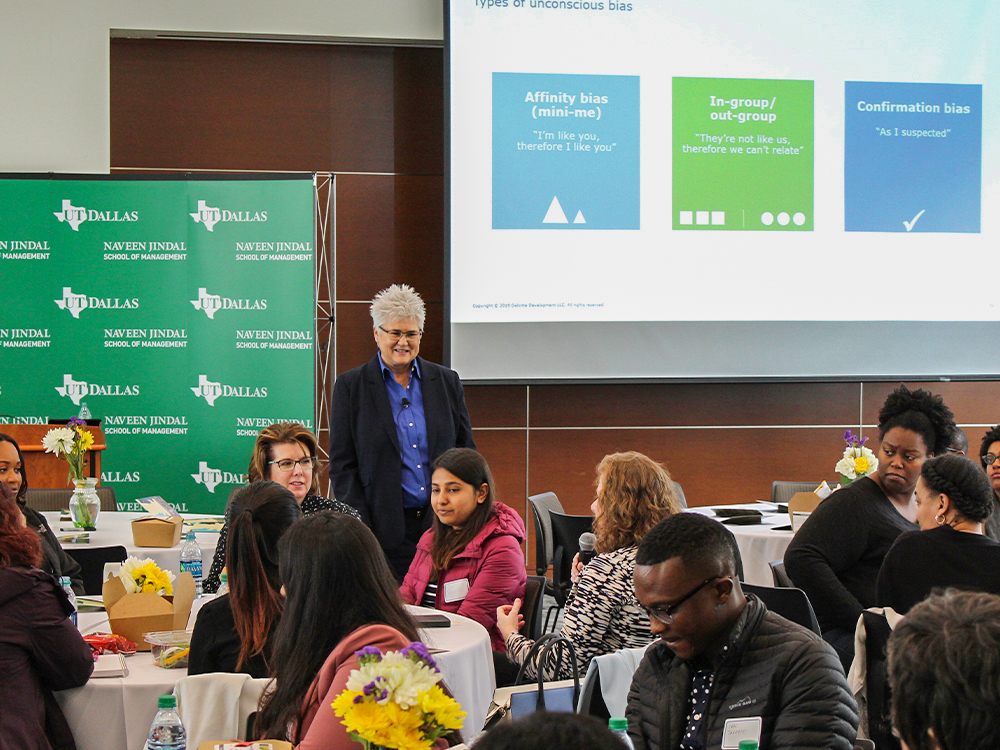Confronting Our Unconscious Biases
02.25.2019
 Beth Gerwe MS’91
Beth Gerwe MS’91
How do you know if you have any unconscious biases? They’re unconscious, after all.
“If you are human, you have unconscious biases,” said Beth Gerwe MS’91, North Texas inclusion leader for Deloitte. “Everybody has a blind spot. It’s wired into us.”
Gerwe, who earned her master’s degree in organizational behavior, led an interactive discussion about unconscious bias as part of the Office of Diversity and Community Engagement’s recent Conversations on Diversity Series.
Experts have identified more than 170 types of unconscious biases, which can lead to unfair judgments about others. Affinity bias, for example, occurs when people unconsciously prefer someone who has a lot of things in common with themselves. Affinity bias can be a problem in hiring decisions, Gerwe said. Confirmation bias, another type, leads one to focus on information that supports his or her opinions.

Unconscious bias naturally results from a lifetime of information from families, society and educational influences.
“It [the information] helps us make judgments; it helps us understand automatically how to go through life,” Gerwe said. But not all of the information, she cautioned, may be correct.
So what can be done about unconscious biases?
The first step is to recognize them, Gerwe told students, faculty and staff members at the luncheon event in the Naveen Jindal School of Management. She encouraged audience members to reach out to others and ask open-ended questions to find commonalities.
Another important step: Pause before making decisions.
“Check some of your assumptions and first impressions,” Gerwe said. “Don’t make snap judgments.”
–Kim Horner



